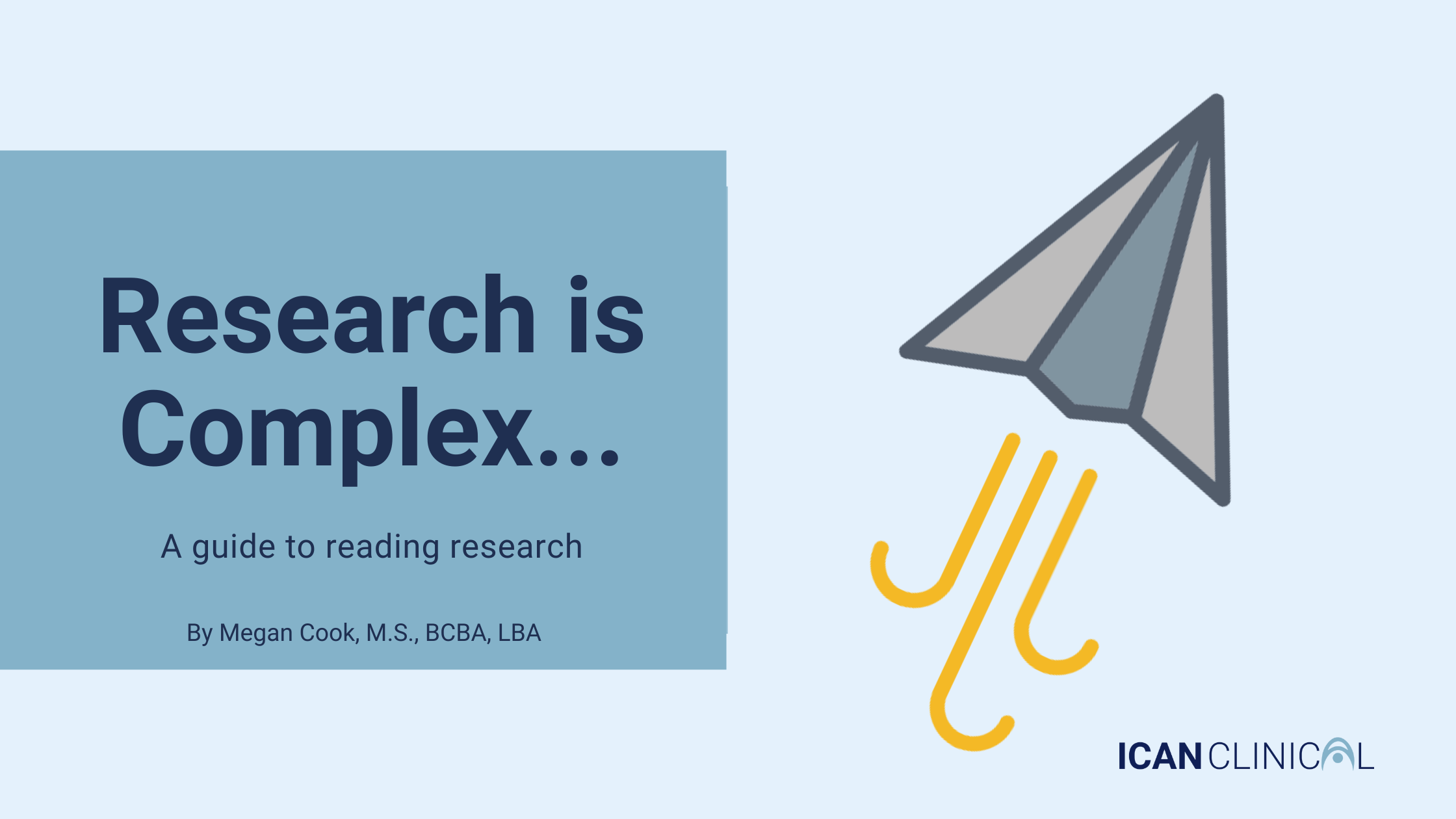
How to Read Research
By Megan Cook, M.S., BCBA, LBA
As a behavior analyst (BCBA), I love data and research. Being bound by providing evidence-based treatments means that BCBAs spend a lot of time pouring over research articles to create individualized programs. You get pretty efficient at picking out articles that have valuable insight since you use this skill A LOT.
Outside of my BCBA world, I am a new parent. I have many questions that seem important (Should we sleep train? How and when do you introduce solids? Am I leaving him on the floor for too long, is he not on the floor long enough?). An internet search brings up tons of opinions on mommy-blogs. Some sites seem a little far-fetched, and I can dismiss them. But other sites have information that seems like it could be legitimate, but they contradict each other. But how do I know? In times like these, when I am down a rabbit-hole at 11 pm about introducing peanut butter to your baby, I remember I have the skills to find and analyze research and make decisions based on science.
If you are a parent who has not had a lot of experience reading research papers, below is a strategy that I have used to make sure I understand as much as possible and critically examine what I am reading.
(Side note: If you're looking for articles about specific topics related to your kid's therapy, your ICAN providers all have access to databases of journals and can always help you find articles --though doing a quick search in Google Scholar will likely give you some decent results with extra information about the article!)
1)Read the introduction first (NOT the abstract):
We all love a good abstract. It seems like an easy way to learn what the article says without reading it. People often read only the abstract and use "facts" from that, which is no good. Sure, the abstract is usually "free," but you can't be sure that what it says is an accurate summary of the paper.
2) Identify the "big" question:
Not "what is this about?" (that's usually pretty clear just from the title), but "what issue in the field is this research trying to solve?" Here is a good place to look for agenda-motivated research (who is backing the study, are they going to try to fix a problem or avoid getting in trouble?). A quick internet search of the authors will give you more information about their affiliations.
3) Try to summarize the background in as few sentences as possible:
Are they giving you background information about related studies? Are there limitations in the research that they express? Do the authors tell you what the next steps should be?
4) Identify the specific question:
Now is where we make sure we clearly understand what the authors are trying to find out with this specific study.
5) Identify the approach:
What are they going to do to answer their question?
6) Read the Methods section:
Draw a diagram of the experiment if that helps you (it helps me). How big was the sample size? Usually, the more subjects, the better, though in ABA, single-subject and smaller sample sizes are sufficient if the study can be replicated
7) Read the Results section:
Try to summarize the results-- just what they are, not necessarily what they mean.
If the results include graphs, do the graphs have error bars that show the data could be inaccurate? To what degree? For certain types of studies, the lack of "confidence intervals" is a big red flag.
8) Ask yourself, "did the results answer the specific questions?":
Did they find the answer to the question they asked? Based on their answer, was your opinion changed based on the results (if you had an opinion going into it)?
9) Read conclusion/discussion section:
Can you come up with any other ways to interpret the results based on the data they presented? What do the authors propose as the next steps based on their results?
10) Finally, read the abstract:
Does it match what was in the paper? Does it fit with your interpretation?
11) Find out what other researchers say about the paper
Another internet search will likely lead you to these for established articles.
Voila! You've critically examined an article and have hopefully learned something new.
Check back for another post where we walk through an article together!
Megan can be reached at CORT@i-can.center.